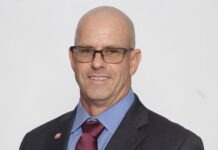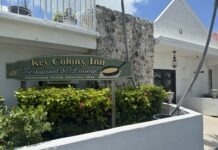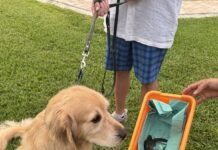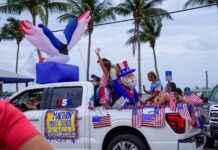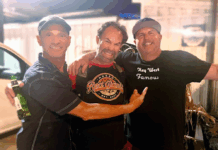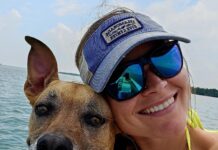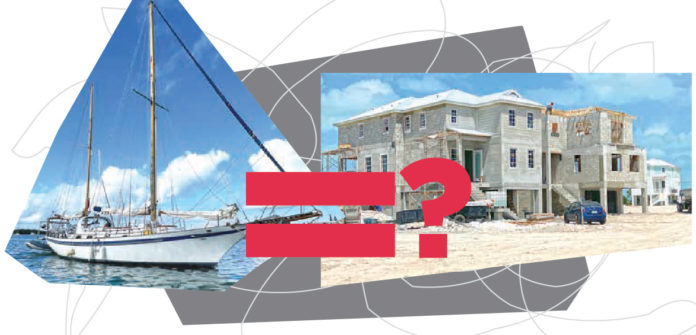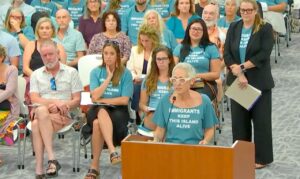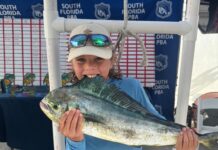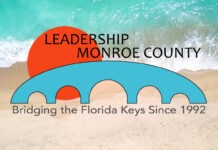Does a lack of express prohibition constitute permission? What’s the difference between a “liveaboard” and a “floating structure?” And what can you do with each of them?
Definitions and code interpretations consumed the majority of proceedings in a final hearing involving the city of Marathon, BoatWorks Investments LLC and the Florida Department of Economic Opportunity on July 13 and 14.
Heard by administrative law judge Todd P. Resavage, the outcome of the two-day hearing could set a significant precedent for the use of live-aboard vessels recognized as dwelling units when the city of Marathon adopted its 2005 comprehensive plan and 2007 land development regulations (LDRs).
DEO’s petition against the city and BoatWorks Investments stems back to Resolution 2021-105, unanimously approved by the Marathon City Council in January 2022, in which the city allowed a limited number of the 32 live-aboard dwelling units previously recognized at a property to be re-developed as land-based units at the same location – if the live-aboards were subsequently done away with.
As Marathon falls within an Area of Critical State Concern, all development agreements within the city – including the BoatWorks plan – are subject to review by DEO unless otherwise specified by a memorandum of understanding between a municipality and the state.
Colloquially known as the “BoatWorks project,” in which 52 units of affordable housing would be paired with up to 20 market-rate units along the waterfront, the development agreement was eventually appealed by DEO, which contended that the decision to redevelop the live-aboard units on land was inconsistent with the principles set forth by Marathon’s comprehensive plan and LDRs. In layman’s terms: a permanent residence on the water should not be used as a basis to build a residence on land, even on the same piece of property.
Though the aftermath of the appeal was outside the scope of this particular hearing, DEO eventually issued a notice of violation to the city and subsequently revoked its long-standing Memorandum of Understanding (MOU) with Marathon when building permits were issued for a limited number of the market rate units as DEO’s appeal of the live-aboard redevelopments was ongoing.
Calling DEO regional planning administrators Scott Rogers and Barbara Powell, former Area of Critical State Concern administrator Rebecca Jetton and Marathon Planning Director Brian Shea as witnesses, DEO attorney Linville Atkins argued that pre-existing boats and slips at the property were better classified as floating structures and were thus expressly prohibited from being re-developed on land due to provisions in Marathon’s code.
“To allow the conversion of 34 wet slips, or live-aboards, to the upland as a development right circumvents the BPAS process or system, which in turn upsets the staged evacuation plan in place for hurricanes,” said Atkins. “This is a very important issue and … if allowed, will establish a dangerous precedent for not just Marathon but for the Keys.”
According to Florida statutes, a floating structure is defined as “a floating entity … which is not primarily used as a means of transportation on water but which serves purposes or provides services typically associated with a structure. … Floating structures are expressly excluded from the definition of the term ‘vessel.’”
While agreeing that “there is an express prohibition on redeveloping floating structures upland,” BoatWorks attorney Bart Smith and Marathon city attorney Steve Williams contended that the same provision is nowhere to be found for dwelling units classified as live-aboards.
“There is nowhere in the comprehensive plan, LDRs, or principles for guiding development that expressly prohibits the redevelopment of live-aboards upland,” said Smith. “Because of this, it implicitly allows that live-aboards, the other type of dwelling units recognized that are waterborne, can be developed upland.”
Smith and Williams pointed to multiple previous development orders for the same property rendered to DEO without appeal since 2006, all of which the pair said recognize the existence of 32 live-aboard dwelling units that are already accounted for in hurricane evacuation models. Scott also argued that by redeveloping the live-aboard units upland and connecting them to modern utilities, the new dwelling units would likely prove to be more environmentally friendly than their live-aboard counterparts.
Witnesses for the city and BoatWorks included BoatWorks manager Amedeo D’Ascanio, Marathon City Manager George Garrett and Shea.
In proceedings largely dominated by definitions and document review, Williams also questioned Powell about an anonymous packet sent by a Marathon citizen to DEO. According to Powell, the packet contained allegations of BPAS mismanagement and permit inconsistencies leveled against Marathon officials.
Though both Powell and additional internal DEO emails obtained by Keys Weekly confirmed that the packet was eventually referred to an internal DEO auditor and law enforcement, Powell said the department’s response to the Boatworks development agreement was unaffected by its contents.
A meeting between Marathon officials and DEO was originally set for June 20 to attempt to settle the case, but was canceled shortly before the meeting by DEO. Brief settlement talks resumed shortly before the last witness took the stand on July 14, but were ultimately unsuccessful.
Video recordings of the hearings are available at https://cloud.castus.tv/vod/city-of-marathon?page=HOME. Though the hearing concluded in two days instead of three as originally scheduled, a ruling from Resavage is likely more than a month away. With the court transcript set to take a minimum of 21 days, all parties will have 10 days upon receipt of the transcript to submit their proposed final orders detailing their desired outcomes. Upon receipt of these proposed orders, Resavage will have an additional 60 days to deliver a final ruling.


